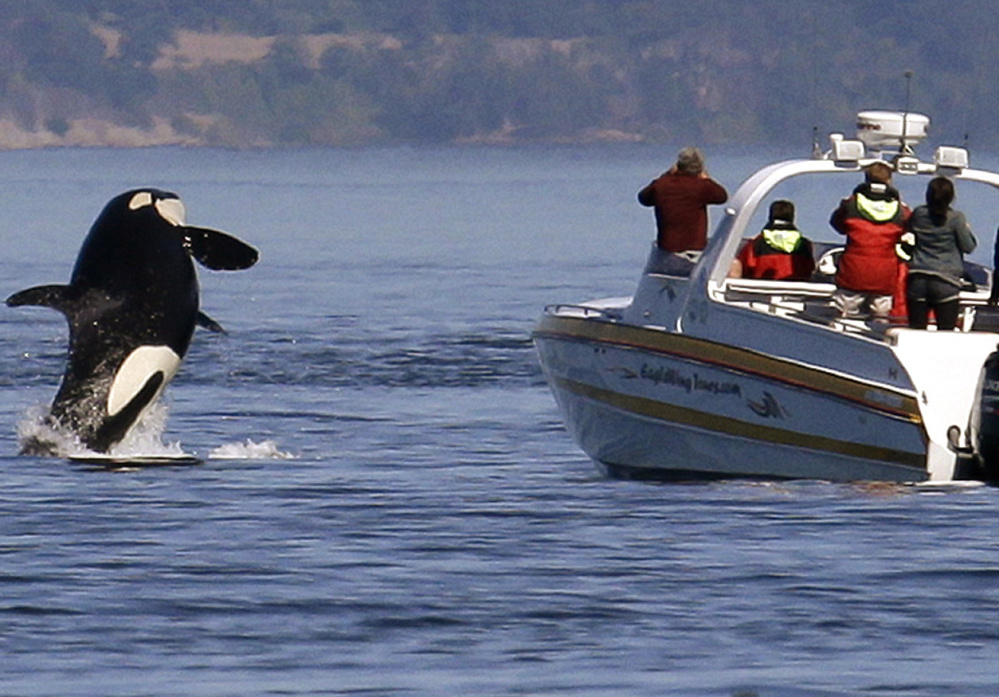Restrictions on vessel traffic have helped keep more boaters from critically endangered southern-resident killer whales, while not harming the whale-watch industry, a new study has found.
Federal restrictions enacted in 2011 require whale-watch boats and other vessels to stay at least 200 yards away from whales. That’s doubled the buffer. Yet whale-watch tourism continues to grow, the National Oceanic and Atmospheric Administration found.
Lack of food, high levels of contaminants in the environment, and disturbance by boat noise are the primary threats identified by the agency to the Puget Sound whales’ survival.
The boat restrictions were intended to help reduce stress on the whales, which spend less time foraging and more time traveling when disturbed by noise, researchers have found.
Noise may also cause the pods of southern-resident killer whales to spend more energy trying to communicate and echolocate to find food.
About 400,000 people a year from over 20 ports on both sides of the U.S.-Canada border watch whales from commercial tour boats, more than ever, said Michael Harris, former executive director of the Pacific Whale Watch Association.
Copy the Story LinkSend questions/comments to the editors.



Success. Please wait for the page to reload. If the page does not reload within 5 seconds, please refresh the page.
Enter your email and password to access comments.
Hi, to comment on stories you must . This profile is in addition to your subscription and website login.
Already have a commenting profile? .
Invalid username/password.
Please check your email to confirm and complete your registration.
Only subscribers are eligible to post comments. Please subscribe or login first for digital access. Here’s why.
Use the form below to reset your password. When you've submitted your account email, we will send an email with a reset code.